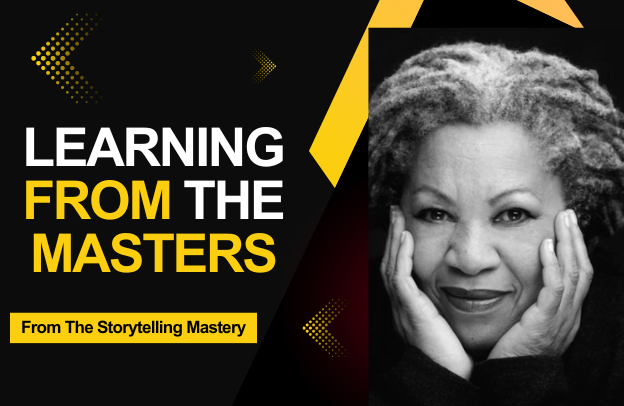5 Key Business Lessons From Zero To One By Peter Thiel – Learning From The Masters

The central message of “Zero to One” by Peter Thiel is the idea of creating and capturing value by going from nothing to something completely new – from “zero to one.” Thiel challenges the conventional entrepreneurial wisdom that emphasizes competition, suggesting that true innovation involves finding unique opportunities and building monopolies in untapped markets. Start by downloading the first chapter of The Storytelling Mastery.
Thiel encourages entrepreneurs to focus on creating groundbreaking products or services that set them apart, rather than simply imitating existing successful ventures. The concept of going from “zero to one” signifies the creation of something entirely novel and valuable, rather than incremental improvements or copying existing models.
The book emphasizes the importance of contrarian thinking, having a singular and ambitious vision, building monopolies, valuing innovation over imitation, and being adaptable and resilient in the face of uncertainty. Thiel’s insights challenge aspiring business leaders to think differently, take calculated risks, and pursue revolutionary ideas to achieve long-term success.
See the full video – 5 Key Business Lessons From Zero To One By Peter Thiel -Learning From The Masters
Who is Peter Thiel?
Peter Thiel is a German-American entrepreneur, venture capitalist, and author known for his influential role in the technology and startup ecosystem. Born on October 11, 1967, in Frankfurt, West Germany, Thiel co-founded PayPal in 1998, a revolutionary online payment platform that quickly gained widespread adoption.
In 2004, they sold PayPal to eBay for $1.5 billion, marking a significant success in his career. Thiel is also a co-founder of Palantir Technologies, a data analytics company that focuses on providing software solutions for government and financial institutions. As a venture capitalist, Thiel has been an early investor in several high-profile startups, including Facebook, where he was the first outside investor and SpaceX.
Beyond his entrepreneurial pursuits, Peter Thiel is known for his distinctive views on technology, business, and society. He gained further attention for his contrarian perspectives expressed in his book “Zero to One,” where he explores innovative thinking and building a successful startup from scratch.
Thiel is recognized not only for his business acumen but also for his outspoken and sometimes controversial opinions on topics such as higher education, monopolies, and the future of innovation. His impact extends beyond individual ventures, shaping discussions and influencing the direction of the tech industry. Now here are the 5 key lessons from Zero to One by Peter Thiel.
Lesson 1: Embrace Contrarian Thinking
In “Zero to One,” Peter Thiel emphasizes the importance of contrarian thinking in building successful businesses. One real instance from the book is Thiel’s discussion of the PayPal Mafia.
Instead of conforming to the prevailing Silicon Valley mentality of the late 1990s, the PayPal founders embraced contrarian thinking by focusing on creating a new digital currency to replace the traditional banking system. This mindset ultimately led to the creation of a successful online payment platform.
Application: In your business, don’t be afraid to challenge conventional wisdom. Identify areas where the majority may be missing opportunities or making assumptions. By approaching problems from a different perspective, you can discover innovative solutions that set your business apart.
Lesson 2: Build a Monopoly
Thiel advocates for the creation of monopolies as a means of ensuring sustained success. He highlights the example of Google, which dominates the search engine market. Thiel argues that having a monopoly allows a company to set its prices, control its competition, and create long-term value.
Application: In your business, focus on developing a unique product or service that addresses a specific need. By becoming the go-to solution in your niche, you can build a monopoly. This might involve investing in research and development, building strong brand recognition, or creating proprietary technology.
Lesson 3: Focus on Singular Vision
Thiel encourages entrepreneurs to have a clear and singular vision for their companies. He contrasts this with incremental progress, emphasizing the need to create something entirely new and groundbreaking.
Tesla serves as a real-world example in the book, where Elon Musk had a grand vision of transitioning the world to sustainable energy, revolutionizing the automotive industry.
Application: Define a bold and unique vision for your business that goes beyond incremental improvements. Clearly communicate this vision to your team and customers. A singular focus helps guide decision-making and inspires others to join your mission.
Lesson 4: Value Innovation Over Imitation
Thiel advises against simply imitating successful businesses and instead advocates for creating something new. He discusses how successful companies like Facebook and Microsoft started by offering a fundamentally different product or service.
Application: When building your business, strive for innovation. Identify gaps in the market and develop creative solutions. Rather than copying existing models, seek ways to bring new value to your customers. This could involve improving efficiency, enhancing user experience, or introducing novel features.
Lesson 5: Adaptability and Resilience
Thiel acknowledges the unpredictable nature of business and encourages entrepreneurs to be adaptable. He discusses the resilience of successful companies like eBay, which transformed itself from a failed experiment in online person-to-person trading into a thriving marketplace.
Application: Be prepared to adapt your business model based on feedback, market conditions, and evolving trends. Embrace challenges as opportunities for growth and learning. Cultivate a culture of resilience within your team, emphasizing the importance of learning from failures and adjusting strategies accordingly.
By incorporating these lessons into your business storytelling, you can inspire and guide others while building a foundation for success.
The importance of innovation and finding unique opportunities for entrepreneurs
Innovation is a cornerstone of entrepreneurial success, playing a pivotal role in driving competitiveness and sustainability. For beginner entrepreneurs, embracing innovation is not just a strategic choice but a survival imperative.
The business landscape is dynamic and constantly evolving, and those who fail to adapt and innovate risk becoming obsolete. By introducing novel ideas, processes, or products, entrepreneurs can differentiate themselves from competitors, capture new markets, and respond effectively to changing consumer needs.
For beginner entrepreneurs, finding unique opportunities is equally crucial, as it lays the foundation for a distinctive value proposition. Identifying and capitalizing on unmet needs or underserved markets can give new businesses a significant advantage.
It’s about understanding the pain points of potential customers and offering innovative solutions that stand out in the crowded marketplace. By carving out a niche or creating a unique selling proposition, beginner entrepreneurs not only attract customers but also build a brand identity that resonates with their target audience.
In essence, the pursuit of innovation and unique opportunities is a dynamic duo that empowers entrepreneurs to navigate the complexities of the business world and establish a solid foundation for long-term success.
To learn more, join our storytelling mastery for businesses at Academy.aclasses.org/storytellingmastery.





